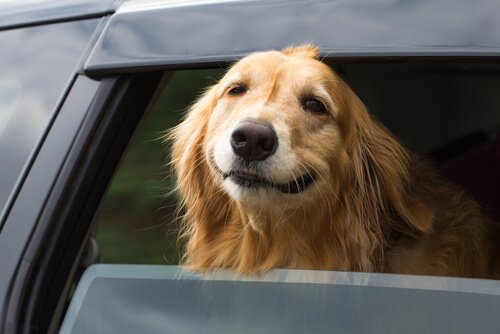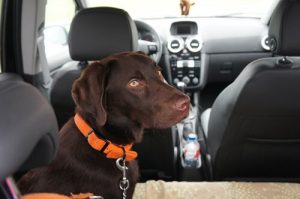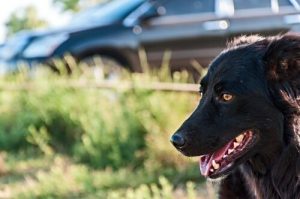Keep Your Dog from Getting Carsick on Road Trips

Summer and vacation are synonymous for many of us. And if you have a car, it’s great to be able to take the whole family, including the pets, and go to some peaceful, beautiful place to rest and relax. That’s why it’s important to know how to prevent your dog from getting sick during the trip — so keep reading!
Why do some dogs get carsick?
Puppies are generally more susceptible than older dogs to getting dizzy or nauseous in the car. This is usually because the parts of the inner ear that deal with balance are not yet fully developed.
But it’s not just younger dogs that get sick inside moving vehicles. It can and often does happen to older dogs too. In this case, it’s important to look for the root cause, which could be anxiety or fear. For example, maybe your dog’s past makes him relate car trips with painful visits to the vet.
Be patient and work lovingly to gradually get your dog used to riding in the car. You can also try to change his experience of car travel by associating it with something positive, like trips to the park or some other fun spot.
Signs that your dog is feeling carsick

The signs that your dog is getting carsick include:
- Agitation
- Discomfort
- Hyperventilation
- Panting
- Whining
- Trembling
- Drooling
- Yawning more than usual
- Inactivity
- Vomiting
- Diarrhea
Before getting into the car with the whole family — including your pet — to embark on your road trip, take some precautions to prevent your dog from getting sick.
Tips to prevent your dog from getting carsick
To keep your road trips turning into a nightmare due to your dog’s carsickness, keep the following tips in mind:
- If your dog is still a puppy, do what you can to get him used to riding in the car.
- Get your pet used to being in the car when it’s stationary. Then start out by going short distances, building up the distance of the trips little by little.
- The first trips should always be to places that are associated with positive experiences: a park, a beach, etc. You should also remember to reward your pet for good behavior with petting, words of encouragement and his favorite treats.
- Drive slowly, and avoid making sudden turns or swerves.
If despite all these precautions, your dog still gets carsick, it’s a good idea to consult a qualified vet to see whether there’s some medication you can give your dog to help it cope with car trips. There are also hormonal treatments that can help. Just ask a vet what else you can do to help your dog feel better in the car.
Issues to consider when riding in the car with your dog

If you’ve got all your bags packed and everything set for your road trip, make sure you haven’t forgotten these key details:
- Take your dog for a nice long walk before setting out to allow him to do his business. This is also a good idea because if he’s physically tired and relaxed after the walk, he’ll likely sleep for a good portion of the journey.
- Make sure that he hasn’t been fed for at least a few hours before starting the trip so that he’s less likely to end up vomiting if he does get carsick.
- Keep the car cool and well-ventilated during the trip. Remember that dogs have difficulty coping with high temperatures.
- Make stops every so often so your dog can get out, stretch his legs, drink some water and do his business.
- Bring some of his favorite toys so he can entertain himself and hopefully forget his fears and anxiety.
- Make sure you act relaxed and happy. You don’t want to spread your nerves to your dog. Additionally, never yell at your dog if he’s feeling anxious or afraid.
And the last, but perhaps most important, point is to make sure you comply with all the rules and regulations for safely transporting animals in the car.